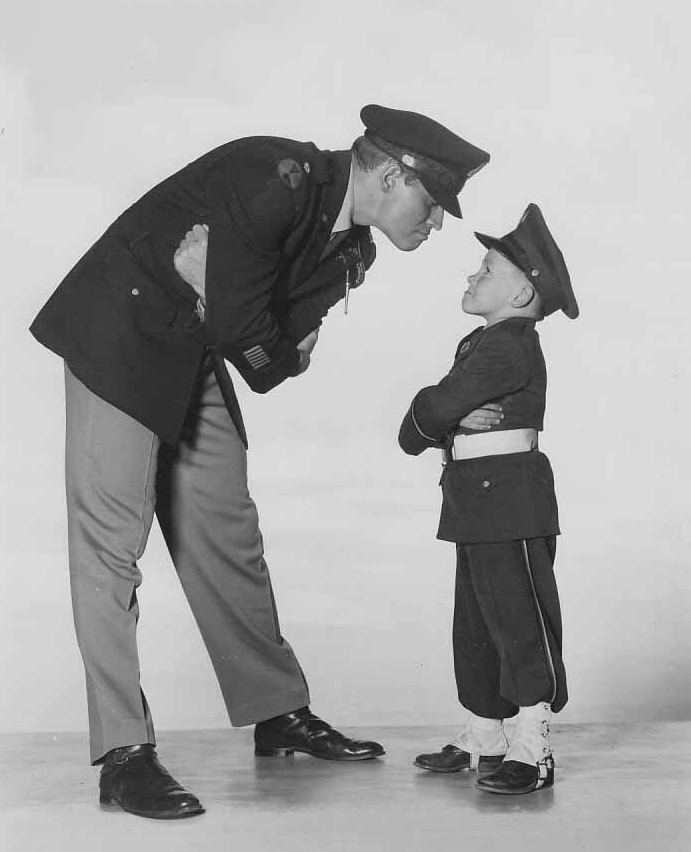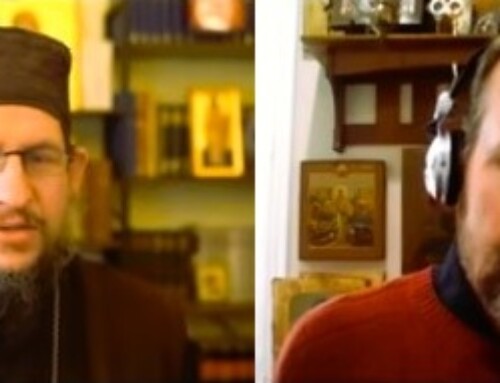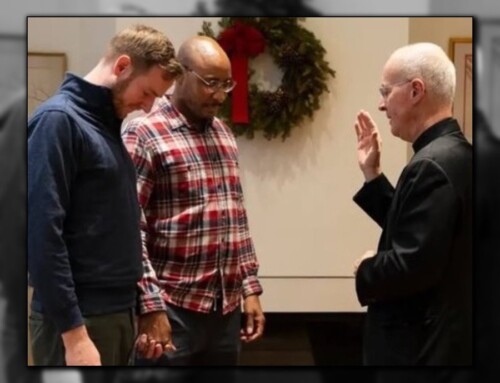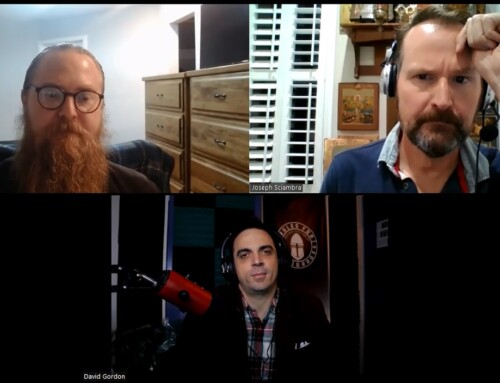The 1955 comedy film “The Private War of Major Benson” is often regarded by film critics and historians, if they mention it at all, as a forgettable little diversion that Charlton Heston shot while on an unforeseen hiatus from The Ten Commandments which was stalled because of director Cecil B. DeMille’s convalescence after a mild heart attack. Actually, the movie is a rather adept exploration of boyhood, the father-son relationship, adolescent male peer dynamics, masculine hero idolatry, the fragile desire for manly affirmation, the difficulties inherent in becoming a man, and how it can easily all go wrong. Camille Paglia wrote: “A woman simply is, but a man must become. Masculinity is risky and elusive…and is confirmed only by other men.”
Released the same year as Rebel Without a Cause, The Private War of Major Benson was already slightly countercultural in the mid1950s as films about juvenile delinquents became increasingly popular; in a milieu of economic prosperity, underlying social discontent made James Dean into an icon of sullen defiance; this scenario appeared again in the late 1960s when “Spaghetti Westerns,” featuring a morally ambivalent anti-hero, spoke to a lost generation; and again, with British singer Morrissey who reverenced the lawless Kray brothers in his song “The Last of the Famous International Playboys.” But instead of focusing on the often-violent struggles of disaffected youth, “The Private War of Major Benson” is a throwback to the movies of a previous era; specifically, the boyhood vehicles featuring child star Dean Stockwell. Most notable in “Down to the Sea in Ships,” “Stars in My Crown,” and “Cattle Drive,” Stockwell played neglected or fatherless boys who are mentored by compassionate and rugged men. However, such foster-fatherhood, particularly when involving a vulnerable child, is sometimes susceptible to manipulation and abuse. From Aesop’s fables to the predatory priest in the play “Doubt: A Parable,” there are numerous examples in Western literature concerning the depraved adult who targets an at risk boy or girl.
Written by Joe Connelly and Bob Mosher, who both went on to be the co-creators and writers of “Leave It to Beaver,” another exploration of the father-son relationship, in “The Private War of Major Benson,” Charlton Heston plays an army-war-veteran drill instructor who believes that the soldiers under his command are “overfed” and “undertrained” and that it’s his job to turn these “milk drinking kids” into real men. As a result, although good intentioned, he constantly badgers and browbeats the men until they begin to mock and hate him. Then, Newsweek magazine hears about the loudmouthed and opinionated Major; when they run an interview with Benson, in which he is critical of the Army, as a punishment he is sent to an ROTC cadet school, Sheridan Military Academy, that is in danger of losing its rating. At his new assignment, the Major, who assumed he would be overseeing older boys, discovers that the Academy is a Catholic boarding school for children ranging from prepubescent boys to young teens. Until his arrival, the previous instructors had all been aged military retirees. Therefore, in Major Benson, the school principal, Mother Redempta, played beautifully by character actress Nana Bryant, best remembered by Catholics of a certain generation as the Mother Superior in the convent of St. Bernadette from “The Song of Bernadette,” saw not only a strict disciplinarian in the Major, but a virile man who could provide a “fatherly guidance,” especially for the younger boys. At that suggestion, Benson bristles with near revulsion. Incredibly out of his element, he treats his new charges no differently than he would his soldiers. Again, this elicits only contempt from most of the boys, but this is also where things get very interesting because not all the cadets loathe Major Benson. For the majority, who probably come from intact healthy homes – after all, this is the mid-1950s, and we see a few of the boys with their parents at a school function – Benson is a mere annoyance and an inconvenience, someone who is making them work too hard. However, instead of focusing on that group, the film concentrates on the relationship between Benson and three particular boys: Dusik, Hibler, and “Tiger.”
The only boy who adamantly appreciates and likes Benson is also one of the oldest: Sylvester Dusik, coincidentally played by later gay murder victim Sal Mineo. Dusik, who is relaxed and selfconfident, who is also the only boy shown brave enough to ask a girl out, is already well on the way to manhood. He looks at Benson less as a father figure and more as an older brother or even simply as his military superior. Later, when Benson becomes ill and is unable to finish the military training required for the school to pass ROTC inspection, Dusik takes over and becomes a sort of Major Benson double – barking orders at the unruly youngsters and eventually getting them ready for the all-important visit by the Army brass. Here, the influence of Benson merely finalized the already burgeoning masculinity within Dusik, because, as he was by this time nearly formed, Dusik responded positively to Benson. But this is not the case with all of the boys.
The second boy, the younger middle-school-aged Hibler, reacts to Benson with a sort of vindictive rebellion that verges on selfdestruction. Early on the Major and Hibler clash, but unlike Dusik, Hibler’s apparent self-assurance when he boldly speaks back to the Major after being punished, is not a sign of maturity but appears petulant and whiny. He is trying to make the step over into manhood but is failing miserably. When we meet his parents, it begins to make sense – the mother is a sour-faced harpy, perfectly cast, who patronizes her son. Claiming that the boy has “emotional problems,” and finding no sympathy from Benson, she proceeds to threaten the Major; apparently the Hiblers have powerful friends in the military. But Benson stands strong and doesn’t fold under pressure. Understandably, in the midst of all this bickering, the boy’s silent father is a beaten and neutered man; although, just after his wife barges out of Benson’s office, he turns to the Major and agrees with him. This is what I would label as the Psycho syndrome – a boy with a domineering mother and a weak and/or absent father; as a reaction against the oppressiveness of the authoritarian female, the boy, as an adult, either becomes obsessed with violent MILF porn – or to the extreme – turns into a serial rapist.
However, another group of smothered boys are also indelibly damaged. They flee from other women while idolizing their mothers. They become, not another Norman Bates, but an emasculated Norman Page – a boy in the little town of “Peyton Place,” so attached to a controlling and needy mother, who serves as his sole protector, that he cannot have a relationship with girl. In the case of Hibler, he is pre-psychotic. In a weird sort of obsessive-compulsive disorder, he endlessly buys or steals small mechanical objects, removes the insides, and then replaces the parts so that the mechanism works in reverse – reminiscent of the fastidious Norman Bates and his preoccupation with taxidermy. It’s a pathetic nervous disorder, completely caused by his home life. When he is caught pilfering a wristwatch, in order to take it apart and put it back together again, Hibler desperately asks Benson, “Are you going to say something to my mother?” Again, there is this reversal taking place, because he does not ask the more typical: “Are you going to say something to my father?” This lack of fatherly authority and affection is psychologically crushing on the neglected boy. In the Frances Hodgson Burnett book “The Secret Garden,” alienation and denial from the father literally paralyzes the son. Today, at least Hibler would probably be treated with Ritalin – inebriating the pain of childhood, in the same way that homosexuality covers over the pain with the false mask of gay self-acceptance.
The most severe reaction to Major Benson is experienced by the six-year-old “Tiger” Flaherty. When Benson first meets the boy, Tiger is feigning a nonexistent injury, clinging to the female school doctor, Dr. Lambert, played by Julie Adams, while referring to her as “Lammy.” Tiger, despite his masculine sounding nickname, is prehomosexual. His father is dead and his working mother, hoping to offer the boy a male role model, sends him to Sheridan Academy. In a sense, Tiger is immediately drawn to Benson, but then immediately revolted when Benson severally criticizes and repudiates him. At times, Benson’s verbal treatment of the boy borders on abusive. To the child, Benson becomes a sort of masculine demigod: all-powerful, superior, distant, remote, unattainable, but also disapproving and ultimately rejecting. I label this the “Wolf Larsen” type after the hyper-masculine tyrant in Jack London’s The Sea Wolf; other examples are Michelangelo’s funeral sculpture for Giuliano de Medici, baseball player Ty Cobb, the “Marlboro Man,” the father in Pat Conroy’s novel :The Great Santini,” the maniacal super-jock dad, played by Vic Morrow, in “The Bad News Bears,” and the egotistical bodybuilder from The Village People song “Macho Man.” Yet, within these worlds of hyperbolic masculinity is an inevitable swerve into tragedy, from scandal and lung cancer, to isolation and AIDS. Benson is in danger of falling into this trap, because, especially with the younger boys represented by Tiger, he doesn’t comprehend the power of his own masculinity and that you cannot treat all boys in the same manner – some need more guidance, some require more discipline, and, while they all need those things, they also need love.
Toward the neurotic Hibler and his mother, Benson is unsympathetic which elicits a plea for compassion from Dr. Lambert. But Benson does not agree. She says, “You’re just incapable of anything tender.” Unconsciously, he is wounded by her correct assessment of his inability to show empathy. Instead of admitting his faults, he manhandles the doctor in a vain attempt to assert his dominance. She slaps him. This scene demonstrates that in the raising of children, the feminine influence, as well as the masculine, are both indispensable. Without women, men quickly lapse into desperation, petulance, and sadism. Taken to the extreme, all-male societies result in fascism symbolized by the practice of muscleworship in the gay male community. But without men, society is left huddled and secluded into ever narrower safe-spaces. Due to Dr. Lambert’s influence, revealing the power of a determined woman who nevertheless appreciates a masculine man, Benson eventually relents and quietly demonstrates an expression of benevolence to the struggling Hibler. The boy starts to look differently at his former archnemesis.
The high point of the film occurs when the boys finally reject Benson; a letter signed by all the students was sent to Washington D.C., asking for the Major’s removal, although it is now regretted by Hibler who was once the mastermind behind the whole thing. Only the loyal Dusik refused to sign it. Surprisingly, Benson is hurt. He too needs to be loved. Because fatherhood remans unfulfilled if he is merely feared, but not loved. When the existence of the letter comes to light, Benson gives up and secretly leaves the school late one evening. At the local bus station, he runs into Tiger; the boy is trying to buy a ticket back home. Herein lies the two greatest shots of the film. Looking up, and the audience shares his point of view, the very diminutive Tiger sees the towering Benson staring down at him with disdain; this is the archetypal image for all pre-homosexual boys who at once feel rebuffed by the male, but also begin to idolize masculinity as the supreme unattainable. In addition, this image has lasting power within gay male culture. Many gay artists have wrestled with this experience – the most poignant probably being the painting “David and Me” by Steve Walker (1961-2012.) Below the massive hands and torso of Michelangelo’s statue stands the overwhelmed figure of the artist. Benson grabs the boy as he tries to escape, then asks him why he is running away. Benson, stubbornly semi-oblivious, doesn’t yet see how he affected the boy. When questioned about whom he hates at the school, Tiger looks directly at Benson and then, suddenly, it finally dawns on him. A moment later, the second greatest shot in the film: again, Tiger is looking up at Benson in awe, the boy gulps and asks, “How tall are you?” Benson answers rather conceitedly, “How tall do you think?” Tiger, still gaping up at him, says, “About 10 feet tall.” Benson, suddenly self-aware and thoughtful, responds, “Yeah, I guess it does look that way.”
From that point onward, Benson changes, and, finally develops into the “fatherly” figure that Mother Redempta hoped for. In the end, he becomes a father to all three boys in varying stages of manhood: a strong male, which he already embodied to the confident Dusik, an understanding disciplinarian to the troubled Hibler, and a masculine source of love to the young and needy Tiger. Ultimately, it’s a process he and the boys had to go through together. And, lastly, this begs to mention the second interesting dynamic in the film: that is the relationship between “Lammy” and the students. For the most part, her intrusions are needling and marked by a feminine instinct to protect, and, at times, coddle the boys; this sort of over attention by women with their sons can easily turn into a repressive sort of emotional suffocation. As Camille Paglia theorized, that boys can only be ushered into manhood by other men; when women enter the picture, especially at the vital age reached by Hibler, the mother tends to stunt growth and confirm any underlying insecurities creating an environment of neurosis, i.e. the flourishing of latent homosexuality. The much older and wiser Mother Redempta tends to hang-back and observe. When “Lammy” smugly asks her: “How could you let the Army send such a man?” she knowingly looks at her and proceeds to recount the heroic and selfless deeds of the Major during the War, ending with the question, “Do you really think such an officer is incapable of understanding or humility?” And that is the absolute linchpin to the film’s exploration of masculinity, male role models, and fatherhood – that without understanding and humility, masculinity becomes a sort of false symbol or at worst a caricature, probably best embodied in the often ugly and hyper-masculine men represented in the 1970s drawings of gay artist Tom of Finland and in modern gay pornography. Once there is a complete disconnection from the masculine, as first represented by the father, everything around men and manliness becomes fetishized and perverse.






I’ll have to look at this.